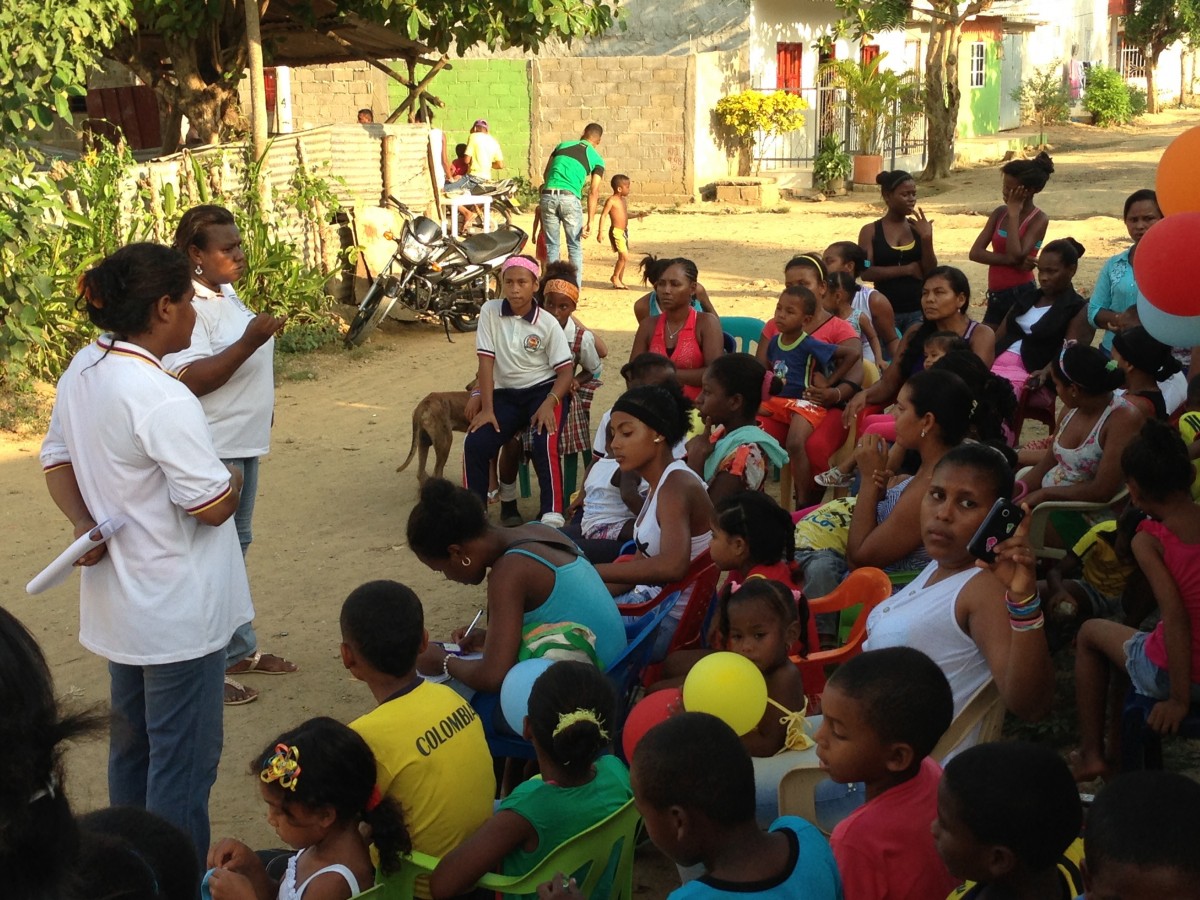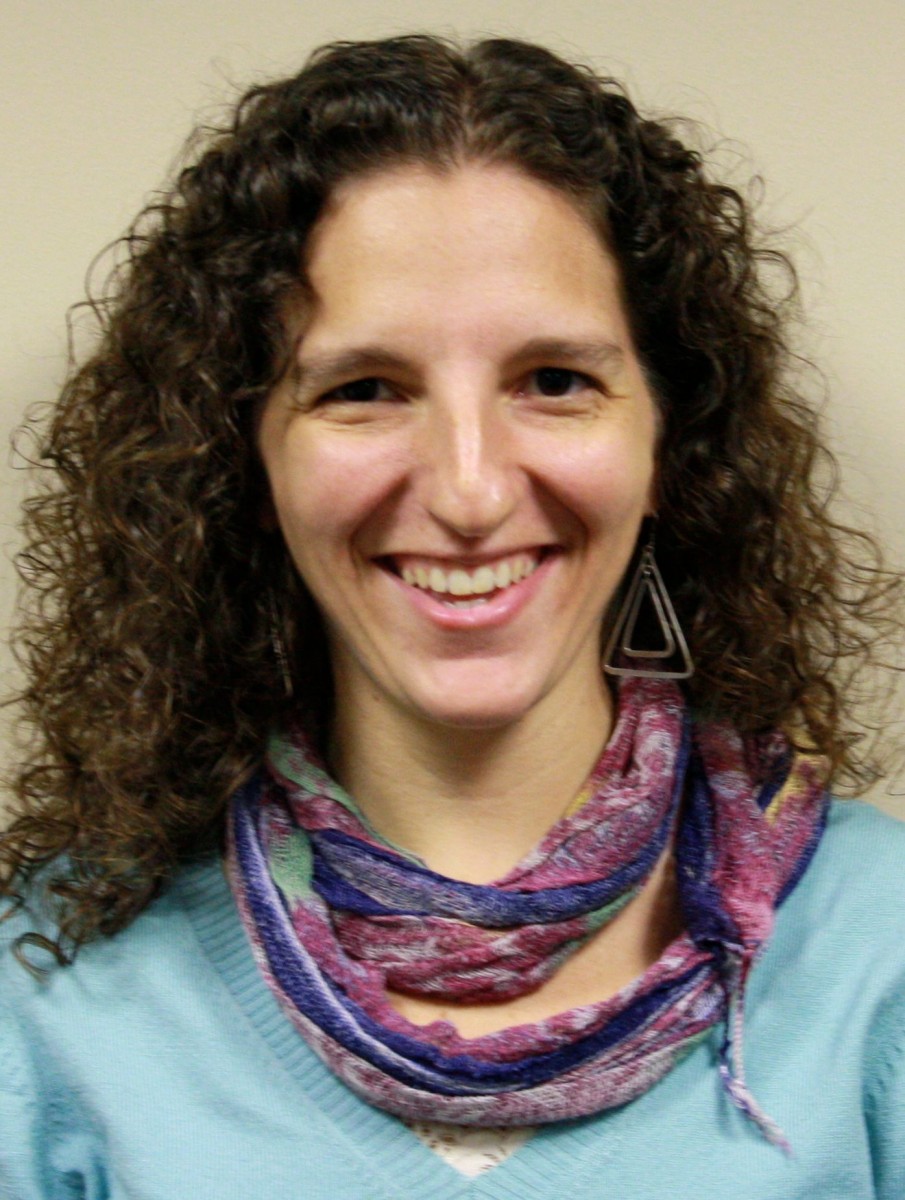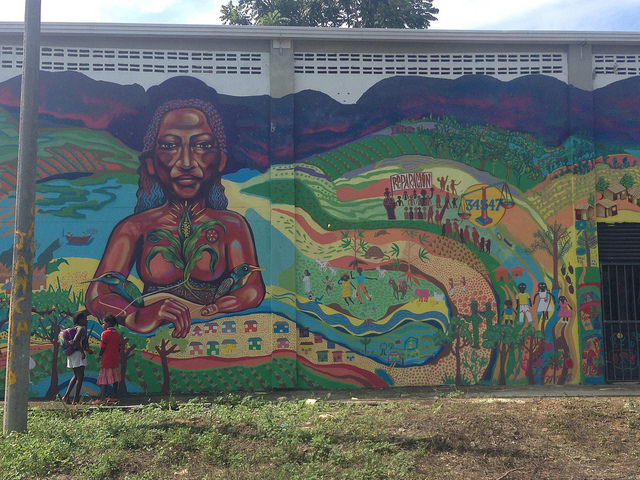

In this field study we will integrate research, theory, and practices of peacebuilding and transitional justice in order to help us learn about and understand the complexities of making sense of life in the aftermath of conflict, creating new relationships within and among communities, and developing agency and capacity for safety in communities.
Dates of Course: June 10 to June 20, 2017
Pre-Trip Meeting Dates: May 6 & 7 (10:00 to 4:00 p.m.) at the Arlington Campus, Metropolitan Building, Room 5183
Cost of Course: $3,650 Program cost includes 3 credits of coursework (CONF 385 or CONF 397, CONF 620 or CONF 695), lodging, most meals, local transportation, museums and cultural activities, speakers and guides. Airfare is not included.
Instructor: Alison Castel and Sara Cobb
Registration Deadline: April 4, 2017
Deposit Due: April 14, 2017 ($500)
Final Payment: May 5, 2017 (Final Payment Due)
Lodging: Lodging will consist of hotels in Cartajena and Sincelejo, and one night of homestays in one of the communities (students will stay in rugged, rural conditions in the home of a trusted family).
Meals: All meals will be provided for the students by the host organizations or the communities during specific visits. Students will have some opportunities to explore restaurants on their own in Cartagena and Sincelejo.
Transportation: In country transportation will consist of trusted contracted vans and drivers that have worked with Sembrandopaz over the years. Students will be permitted to use taxis in the cities during down time.
Zika Virus Warning: All travelers should be aware that the Zika Virus is present in Brazil, and the CDC has issued a Level 2 Warning to Practice Enhanced Precautions. Please visit the CDC Traveler's Health Page for more information.
 astel holds a BA in Spanish and Sociology from University of Wisconsin-Madison and a M.S. Ed. in Intercultural Communication from the University of Pennsylvania. Alison was a Rotary Peace Fellow in 2009 at Chulalongkorn University in Bangkok, Thailand, involved in field studies on the Thai-Burma border and in Cambodia. She most recently was the International Program Coordinator at Haverford College’s Center for Peace and Global Citizenship. Current interests include: research and practice in transitional justice, the politics of memory and historical narrative, the role of gender in post-conflict reconstruction, and the impact of foreign actors on the protraction and resolution of conflict. Alison comes to S-CAR with a decade of experience in conflict studies practice and pedagogy, field experiences in Israel/Palestine, Thailand, Indonesia, Cambodia, and Rwanda. Alison is a S-CAR Dean’s Fellow.
astel holds a BA in Spanish and Sociology from University of Wisconsin-Madison and a M.S. Ed. in Intercultural Communication from the University of Pennsylvania. Alison was a Rotary Peace Fellow in 2009 at Chulalongkorn University in Bangkok, Thailand, involved in field studies on the Thai-Burma border and in Cambodia. She most recently was the International Program Coordinator at Haverford College’s Center for Peace and Global Citizenship. Current interests include: research and practice in transitional justice, the politics of memory and historical narrative, the role of gender in post-conflict reconstruction, and the impact of foreign actors on the protraction and resolution of conflict. Alison comes to S-CAR with a decade of experience in conflict studies practice and pedagogy, field experiences in Israel/Palestine, Thailand, Indonesia, Cambodia, and Rwanda. Alison is a S-CAR Dean’s Fellow. Dr. Sara Cobb, (Ph.D., University of Massachusetts, Amherst) is the Drucie French Cumbie Professor at The School for Conflict Analysis and Resolution (S-CAR) at George Mason University, where she was also the Director for 8 years. In this context she teaches and conducts research on the relationship between narrative and violent conflict; she is also the Director of the Center for the Study of Narrative and Conflict Resolution at S-CAR that provides a hub for scholarship on narrative approaches to conflict analysis and resolution. Formerly, she was the Director of the Program on Negotiation at Harvard Law School and has held positions at a variety of tier one research institutions such as University of California, Santa Barbara, University of Connecticut, and more recently at the University of Amsterdam. She has also consulted to and/or conducted training for a host of public and private organizations, including UN High Commission on Refugees, UNDP, La Caxia Bank, and Exxon, the American Bar Association, Fox Learning Academy as well as a number of universities in Europe and Latin America. Dr. Cobb is widely published.
Dr. Sara Cobb, (Ph.D., University of Massachusetts, Amherst) is the Drucie French Cumbie Professor at The School for Conflict Analysis and Resolution (S-CAR) at George Mason University, where she was also the Director for 8 years. In this context she teaches and conducts research on the relationship between narrative and violent conflict; she is also the Director of the Center for the Study of Narrative and Conflict Resolution at S-CAR that provides a hub for scholarship on narrative approaches to conflict analysis and resolution. Formerly, she was the Director of the Program on Negotiation at Harvard Law School and has held positions at a variety of tier one research institutions such as University of California, Santa Barbara, University of Connecticut, and more recently at the University of Amsterdam. She has also consulted to and/or conducted training for a host of public and private organizations, including UN High Commission on Refugees, UNDP, La Caxia Bank, and Exxon, the American Bar Association, Fox Learning Academy as well as a number of universities in Europe and Latin America. Dr. Cobb is widely published.

Previous Trips
- Approaches to Conflict Management and Resolution: Field Work with Syrian Refugees in Jordan - Spring 2017
- Brazil - Summer 2016
- Indonesia - Gender and Conflict - Winter 2017
- Indonesia - Research Methods - Summer 2016
- Malta - Bridging Differences: Migration in the Mediterranean Spring 2017
- Northern Ireland - Summer 2016
- Reflective Practice in Israel/Palestine Winter 2017
- Spain: From Victimhood to Social Justice Basque Country Spring 2017
- The Balkans - Summer 2016


